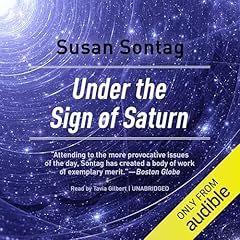
Becoming George Orwell
Life and Letters, Legend and Legacy
Failed to add items
Add to Cart failed.
Add to Wish List failed.
Remove from wishlist failed.
Adding to library failed
Follow podcast failed
Unfollow podcast failed
 Prime members: New to Audible?
Prime members: New to Audible?Get 2 free audiobooks during trial.
Buy for $20.71
-
Narrated by:
-
Richard Poe
-
By:
-
John Rodden
The remarkable transformation of Orwell from journeyman writer to towering icon
Is George Orwell the most influential writer who ever lived? Yes, according to John Rodden's provocative book about the transformation of a man into a myth. Rodden does not argue that Orwell was the most distinguished man of letters of the last century, nor even the leading novelist of his generation, let alone the greatest imaginative writer of English prose fiction. Yet his influence since his death at midcentury is incomparable. No writer has aroused so much controversy or contributed so many incessantly quoted words and phrases to our cultural lexicon, from "Big Brother" and "doublethink" to "thoughtcrime" and "Newspeak." Becoming George Orwell is a pathbreaking tour de force that charts the astonishing passage of a litterateur into a legend.
Rodden presents the author of Animal Farm and Nineteen Eighty-Four in a new light, exploring how the man and writer Orwell, born Eric Arthur Blair, came to be overshadowed by the spectral figure associated with nightmare visions of our possible futures.
Rodden opens with a discussion of the life and letters, chronicling Orwell's eccentricities and emotional struggles, followed by an assessment of his chief literary achievements. The second half of the book examines the legend and legacy of Orwell, whom Rodden calls "England's Prose Laureate", addressing his influence on everything ranging from cyberwarfare to "fake news." The closing chapters address both Orwell's enduring relevance to burning contemporary issues and the multiple ironies of his popular reputation, showing how he and his work have become confused with the very dreads and diseases that he fought against throughout his life.
©2020 Princeton University Press (P)2019 Recorded BooksListeners also enjoyed...




















Where he went terribly wrong was in his most cherished idea: To have a new edition of 1984 (ne Nineteen Eighty-Four) that has a voluminous introduction with vast footnotes, you know, for context. You do not footnote fiction. Nor do you tell “us children” what and why to think. Yes, scant notes (preferably in the back, so they can be ignored) about Orwell’s “life and times” is fine. But keep that nonsense to a minimum. Thank you. He then takes a few bizarre detours like the lesser-known author Jean Malaquais, but rights himself with the better analogy of Albert Camus’ career vs. the circuitous path to “George Orwell.”
The author almost redeems this work by the end. He tells us very clearly his bias, his journey and that he is no longer a socialist or a utopian. Then he un-ironically states his firm belief that these socialist ideas are “within human reach… to design communities that make it easy to be good.” It would take me an entire book to explain what is wrong with these statements, but it is obvious the author still believes “we” must be told what to think and should all be subjected to room 101… for our own good.
I Wanted to give this book one star. By the end, I softened only a little when the author weighed the pros and cons of Orwell’s legacy – in the end he saw him as the most important writer of the age but also as a flawed human, as Orwell seemed to want to present himself.
Please Do Better
Something went wrong. Please try again in a few minutes.


